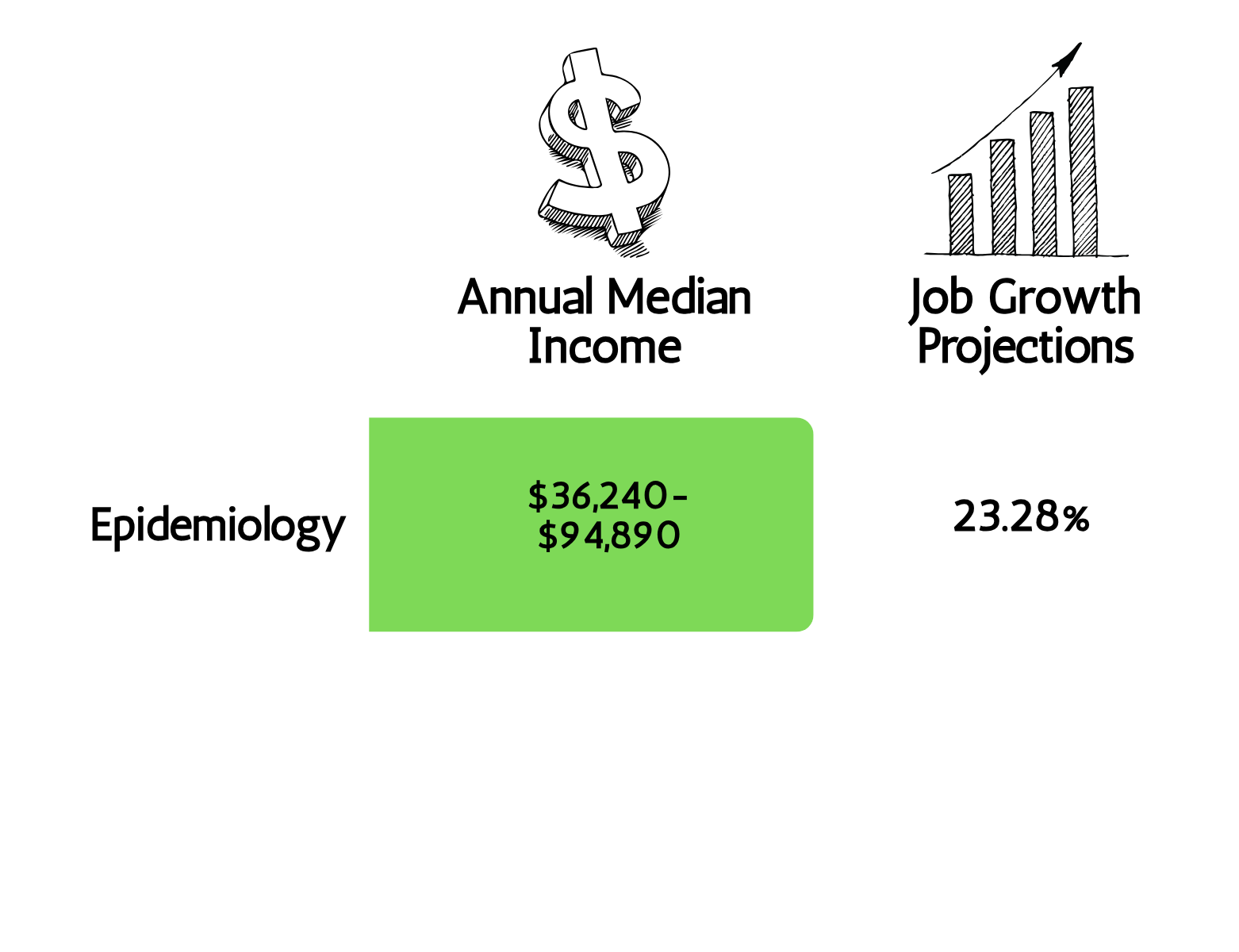Careers in Epidemiology:
Improve Behavioral Health With Data
Is a Career in Epidemiology Right for You?
Do you enjoy solving puzzles, working with data, and protecting your community’s health?
Epidemiologists are like detectives for public health—they study patterns, causes, and effects of health problems in populations. In behavioral health, they focus on understanding issues like mental illness and substance use by collecting and analyzing data. Their work helps identify trends, uncover root causes, and guide prevention efforts that can save lives.
If you're naturally curious, love asking questions, and notice small details others might miss, you might be a great fit for this field. Epidemiologists also need strong math and science skills, critical thinking, and a desire to help others through research and evidence-based solutions. A career in behavioral health epidemiology lets you make a big impact—often behind the scenes—by helping communities prevent problems before they start.
*Please note that the job recommendations listed throughout this page will vary by agency and county, as some may require additional training or licensure.
Your Path to a Career in EPIDEMIOLOGY
What does it take?
Get Educated
Get Experience
Get Ahead
Income varies and is based on role, location, experience, education, and licensing/credentials. Job growth projections are for 2023-2033. Ohio LMI
Salary ranges are based on what’s currently available through Zip Recruiter, Indeed, Career One Stop, or Salary Expert.

Get more info in the FAQs
EPIDEMIOLOGY PROFESSIONALS - FAQ
-
You enjoy research and data analysis.
You want to improve community health.
You like solving complex problems.
You are interested in mental health and behavior.
You seek a career with impact and purpose.
Epidemiology combines science and service to protect and promote public health.
-
With a bachelor's degree or higher:
Epidemiologist
In behavioral health, epidemiologists study patterns of mental illness, substance use, and related health issues in communities across Ohio. They collect and analyze data to find out what’s causing problems, who is most affected, and where help is needed most. Their research helps health leaders, schools, and government agencies make smart decisions—like creating new programs, improving services, or changing policies—to support better mental health for everyone.
Other job titles you may see:
Field Epidemiologist
Research Epidemiologist
Public Health Analyst
Nurse Epidemiologist
Public Health Epidemiologist
Epidemiology offers diverse roles where you can apply scientific methods to real-world health challenges.
-
Collect and analyze data on mental health and substance use trends.
Identify risk factors and populations at risk.
Evaluate the effectiveness of behavioral health programs.
Develop strategies to prevent mental health issues.
Collaborate with healthcare providers and policymakers.
In behavioral health, epidemiologists play a key role in understanding and addressing mental health challenges.
-
Hospitals and healthcare systems
Universities and research institutions
Nonprofit organizations
Harm Reduction Programs
Federal agencies like the Center for Disease Control and Prevention (CDC)
Epidemiologists work in various settings to monitor and improve public health.
-
People Facing Mental Health and Addiction Challenges: Epidemiologists help by finding patterns and solutions that lead to better care and support.
Healthcare and Public Health Workers: They provide data and tools that help doctors, nurses, and public health teams do their jobs more effectively.
Policymakers and Leaders: Their research helps community leaders and government officials make smart decisions about programs, funding, and laws.
The Public: From teens to seniors, epidemiologists help keep everyone healthier by spotting problems early and preventing future ones.
Underserved and At-Risk Groups: They focus on helping those who face more health risks, like people in poverty, rural areas, or minority communities.
Epidemiologists serve entire communities by using science to shine a light on health problems—and helping others take action to solve them.
-
Education in public health and related fields prepares you for a career in epidemiology.
Bachelor's degree: Start with a degree in public health, biology, nursing, psychology, or a related field.
If majoring in Public Health, look for schools and programs that are accredited by the Council on Public Health Education (CPHE)!
If majoring in Nursing, choose an educational program that is accredited by either the Accreditation Commission for Education in Nursing (ACEN) or the Commission on Collegiate Nursing Education (CCNE).
Master's degree: A Master of Public Health (MPH) with a focus on epidemiology is commonly required.
Doctoral degree: For advanced research roles, a Ph.D. in epidemiology or related fields may be necessary.
Nursing Background: Registered Nurses (RNs) can specialize in epidemiology through additional public health training.
-
While not always mandatory, certifications can enhance your qualifications and career prospects.
Certified in Public Health (CPH): Offered by the National Board of Public Health Examiners, this certification demonstrates expertise in public health.
Registered Nurse (RN): Nurses must be licensed to practice and can pursue roles in epidemiology with additional training.
Click here to learn more about licenses, credentials, and certifications.
Disclaimer: The information provided on this website is accurate to the best of our knowledge at the time of publication. If you notice any errors or outdated information, please contact accounts@mhaadvocacy.org so we can make the necessary corrections.


